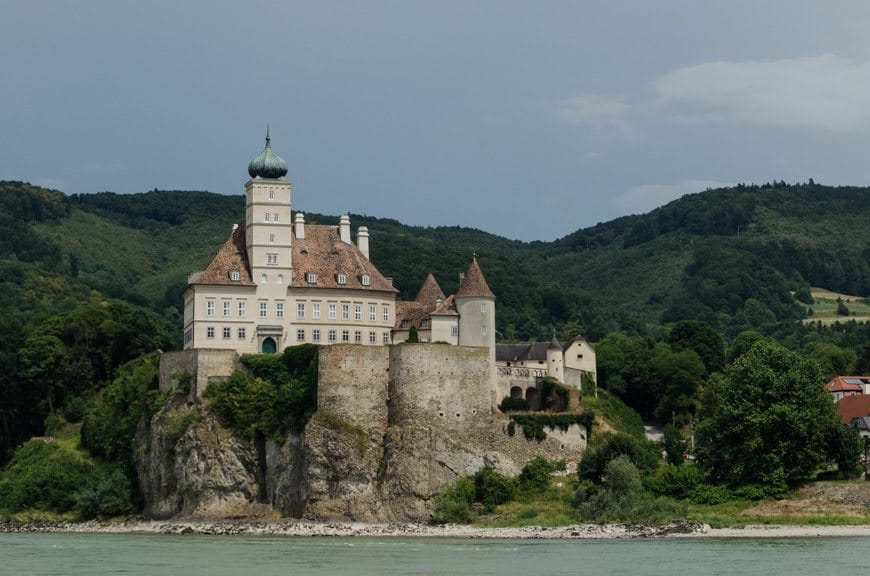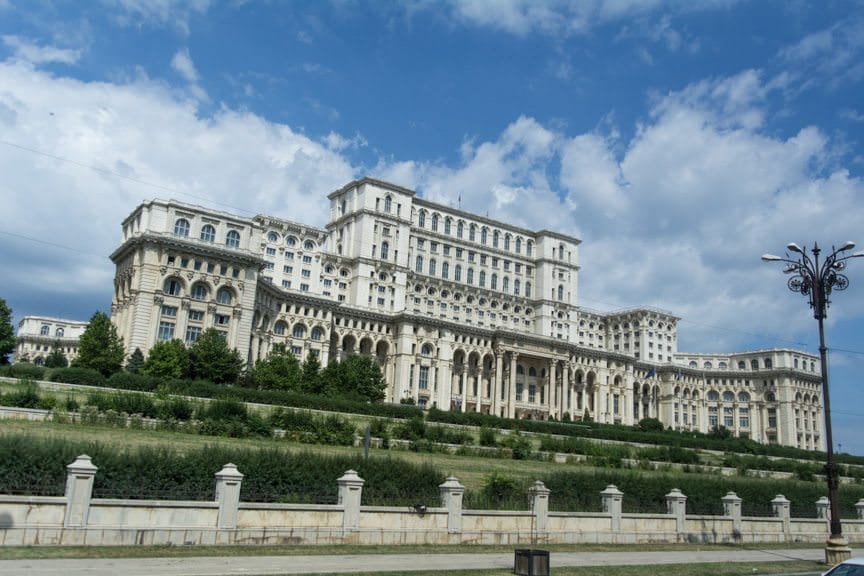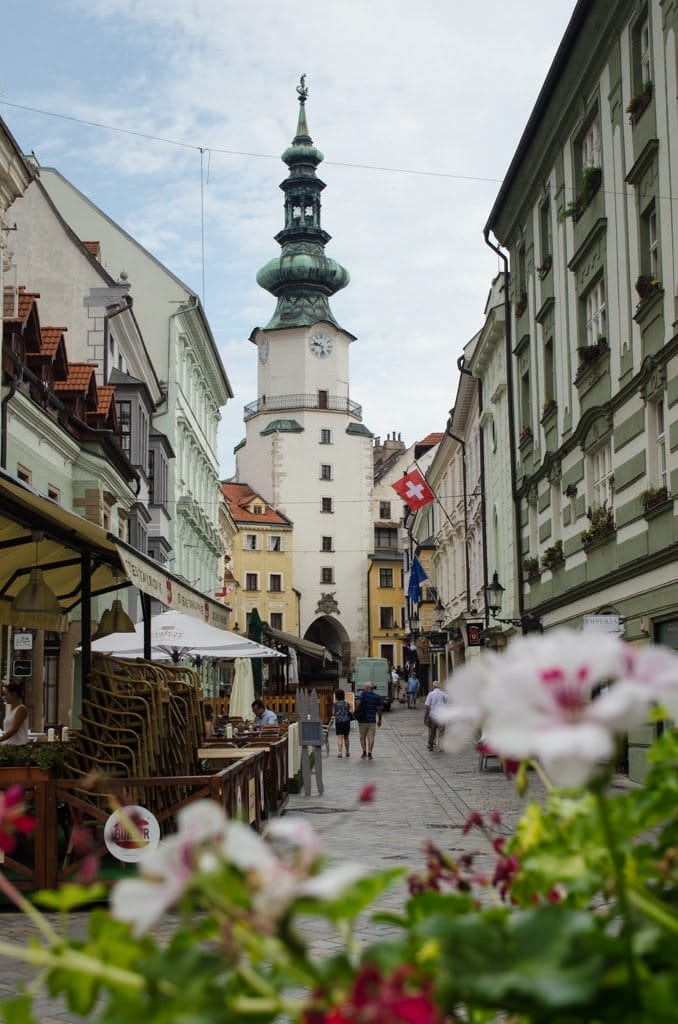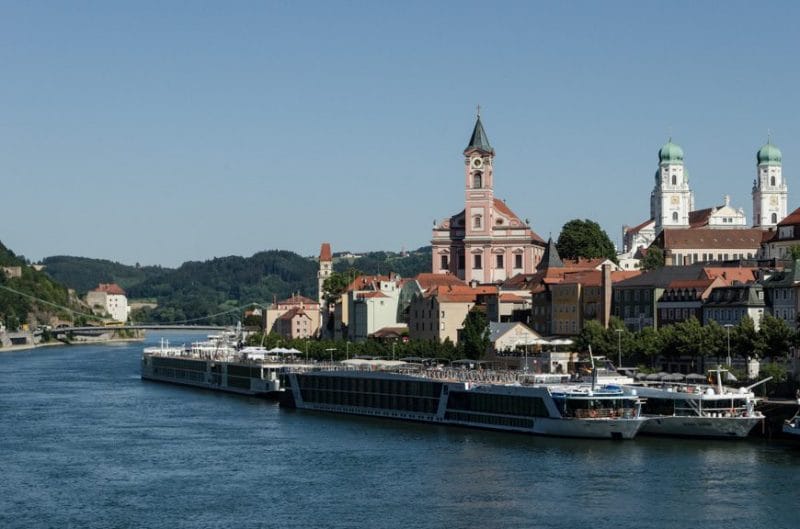If you’re planning a river cruise, one of the most obvious considerations is a sailing along the famous Danube River. Flowing over 2,400 kilometres (1,491 miles) from the edge of the Black Sea to its final termination point near the town of Kelheim, Germany, the Danube is one of river cruising’s most popular destinations.
It’s also one of the most diverse, and is separated into two sections: the Western Danube (also known on itineraries as simply “the Danube”; and the Eastern Danube, which encompasses the stretch of the river east of the Hungarian capital of Budapest.
Despite the fact that they share the same name, the Eastern and Western Danube provide two very different river cruise experiences. Both are very enjoyable in their own right, but both can lead to disappointment if your expectations are out of line.
After having sailed both stretches of the Danube, we’ve drawn up a handy list of comparisons between the two stretches of river – along with recommendations for which river cruise you should take, depending on your interests.
It’s Your First River Cruise

Take the Western Danube. For first-time river cruisers, the Western Danube – which typically encompasses sailings that begin in Germany and terminate in Hungary, or vice-versa – is the ideal choice. Western Danube itineraries offer a great mix of major European cities like Vienna, juxtaposed alongside small, picturesque towns – we’re looking at you, Durnstein, Austria. The landscape varies from hilly to mountainous, and a small town with a church steeple will pass your ship literally every five minutes as you sail along. As an introduction to both river cruising and Europe, this is the hands-down first-time-cruise winner.
You’re Interested in The History of Communism

Take the Eastern Danube. Needless to say, the Eastern Danube itineraries that operate between Budapest and Bucharest, Romania are the way to go. Although the Berlin Wall fell in 1989 and communism in this region collapsed shortly thereafter, Communism’s long shadow still looms darkly over Romania, Bulgaria, Serbia and Croatia, with the latter countries having been terribly affected by the breakup of the former Yugoslavia and the bloody Croatian War of Independence that raged on until 1995. Locals are candid about their history, which is often filled with twists, turns, and regrets. Nearly three decades later, this part of Europe is raw, authentic and engaging.
You Want To See Postcard-Perfect Towns
Take the Western Danube. The Western Danube offers cities like Vienna that are rich with cultural history and modern conveniences. It also happens to be clean, and postcard-perfect throughout, from the gorgeous town of Melk with its imposing, canary-yellow Abbey to the meticulously-preserved cobblestone streets of Passau and Regensburg. The Eastern Danube, on the other hand, can’t quite offer that. The Eastern stretch of the Danube is remarkably flat, and nearly devoid of riverside towns. Which brings us to…
You Want To Dock In The Heart of Town
Take the Western Danube. Although there are cities (Vienna, most notably, and Nuremberg on the Main-Danube Canal) where you’ll have to dock well outside of town, for the most part Western Danube cruise ships tie up right in the heart of the action, with cityside berths in Regensburg, Passau, Linz, Durnstein, Melk, Bratislava and Budapest, just to name a few. On the Eastern Danube, docking locations are primarily industrial in nature, with hour-long motorcoach rides between the pier and the city. The one exception to this is Belgrade, Serbia, which has a picturesque docking location located just steps from the historic Old Town center.
You’re Looking For An Off-The-Beaten-Path Experience

Take the Eastern Danube. If you don’t want to see a single Starbucks location on your journey, take the Eastern Danube. You’ll see McDonalds, Burger King and the odd H&M, but other than that, the Eastern Danube is far less touristic and commercialized than its Western counterpart, which offers all the retail therapy you’ll find at home. Instead, the Eastern Danube is more locally-focused. Restaurants, cafes and bars are family-run and, in many instances, have been operating there for generations. Tourists, while still present during the high-season months of summer, are less prevalent than on the more-popular Western Danube. Some cities (Bucharest, Belgrade) are more modernized than others, with towns like Osijek and Vukovar, Croatia, still recovering from the War of Independence two decades ago.
It’s Your Second River Cruise
Take the Eastern Danube. Without a doubt, if your first river cruise was on the Western Danube, your second voyage should take you to the Eastern Danube. The contrast provided between the two will help you to understand the issues that face countries like Romania and Bulgaria to this day, and the delicate, sometimes complicated balance between acknowledging a communist past while grappling with the uncertainty that surrounds the tenuous version of ‘democracy’ that grips some of these countries to this day. It’s a fascinating look at an often-overlooked part of Europe.
No matter which Danube you choose, you’re going to have a good time. But tailoring your Danube river cruise to your likes and interests can make a big difference.
Click here for a look at a Danube River Cruise with Emerald Cruises






One Response
I’m interested in cruising the Danube from east to west (Black Sea to western Europe) in late April/early May 2024. I’m planning travel by rail from Athens, Greece, to anywhere along the eastern Danube where I can board a westbound Danube cruise and then proceed to the western terminus of that cruise.
Can you please provide me options available for journey such as (or similar to) this plan?